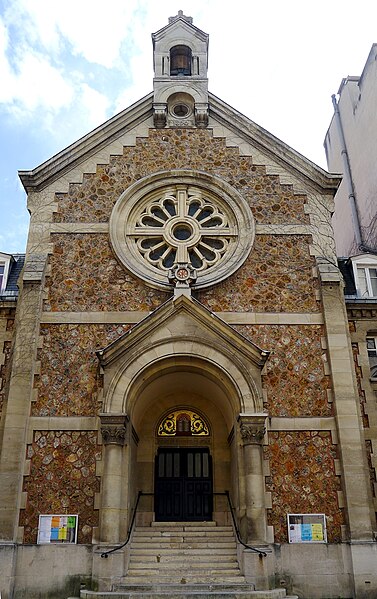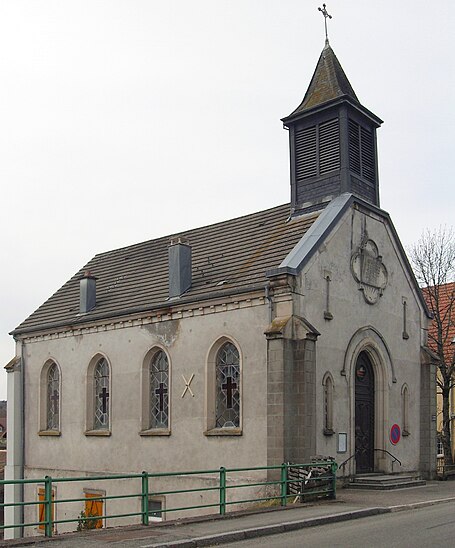Protestantism in France has existed in its various forms, starting with Calvinism and Lutheranism since the Protestant Reformation. John Calvin was a Frenchman, as were numerous other Protestant Reformers including William Farel, Pierre Viret and Theodore Beza, who was Calvin's successor in Geneva. Peter Waldo was a merchant from Lyon, who founded a pre-Protestant group, the Waldensians. Martin Bucer was born a German in Alsace, which historically belonged to the Holy Roman Empire, but now belongs to France.
The Église réformée de l'Annonciation, Paris
The Lutheran church at Giromagny
"The Expulsion from La Rochelle of 300 Protestant families in November 1661"; by Jan Luyken
The Protestant psalter, 1817
The Huguenots were a religious group of French Protestants who held to the Reformed (Calvinist) tradition of Protestantism. The term, which may be derived from the name of a Swiss political leader, the Genevan burgomaster Besançon Hugues (1491–1532), was in common use by the mid-16th century. Huguenot was frequently used in reference to those of the Reformed Church of France from the time of the Protestant Reformation. By contrast, the Protestant populations of eastern France, in Alsace, Moselle, and Montbéliard, were mainly Lutherans.
Persecution of the Waldensians in the massacre of Mérindol in 1545
Huguenots massacring Catholics in the Michelade in Nîmes
Millais' painting, A Huguenot on St. Bartholomew's Day
The St. Bartholomew's Day massacre of French Protestants (1572). It was the climax of the French Wars of Religion, which were brought to an end by the Edict of Nantes (1598). In 1620, persecution was renewed and continued until the French Revolution in 1789.








